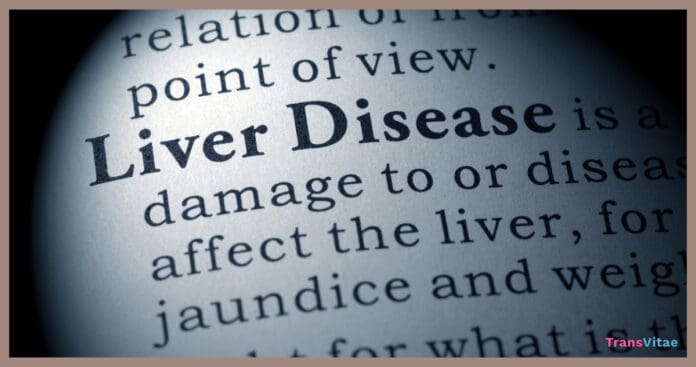A recent study in The American Journal of Gastroenterology revealed a worrying trend: transgender adults in the United States have significantly higher rates of severe liver disease, particularly cirrhosis, due to alcohol use. While people under 45 have been contributing to a rise in liver-related deaths, the transgender community faces a disproportionate burden, underscoring the urgent need for targeted health interventions and support.
Understanding the Study
Dr. Brian P. Lee, a liver transplant specialist at the University of Southern California, led the study’s analysis of 15 years’ worth of health information from 330,000 cirrhosis patients with commercial insurance plans. It found that transgender individuals, who make up less than 1% of the U.S. population, face double the risk of severe liver disease compared to their cisgender counterparts. The findings were particularly alarming for cirrhosis caused by heavy drinking, which accounted for about 60% of cases in the transgender group, compared to 50% in the cisgender population.
Dr. Lee explained the motivation behind the study: “There was really no data regarding transgender individuals and liver health. We hypothesized that this would be a unique subpopulation needing specific research and attention. Trans individuals are known to have higher risks of substance misuse disorders and mental health conditions, which could put them at higher risk for liver-related conditions.”
The Impact of Alcohol
The accumulation of scar tissue that impairs the liver’s ability to function normally is a hallmark of the chronic, progressive liver disease known as cirrhosis, which has alcohol use disorder as a major cause. The study’s findings indicate that alcohol-driven liver disease is significantly higher among transgender individuals. This suggests a critical need for tailored interventions to address alcohol misuse in this population.
Dr. Lee emphasized the significance of these findings: “The fact that alcohol accounted for 60% of cases among transgender patients tells you the risk factors and possible interventions needed to address alcohol misuse in this population. This study shows the end and late stages of drinking patterns, which typically take several years of heavy drinking to develop into cirrhosis.”
Mental Health Connections
The study also highlighted the strong correlation between mental health conditions and liver disease in transgender individuals. About 60% of transgender adults with cirrhosis were diagnosed with anxiety and/or depression, compared to 40% of cisgender patients with cirrhosis. This connection suggests that mental health issues may contribute to higher rates of alcohol use, leading to liver damage.
“This is kind of hypothesis-generating,” said Dr. Lee. “We found higher rates of depression and anxiety among transgender individuals with cirrhosis. We know that alcohol can be used as a coping mechanism for depression and anxiety. Our hypothesis is that having depression and anxiety leads to increased alcohol use, which can then lead to higher rates of liver damage and eventually cirrhosis.”
Gender and Hormone Therapy
Interestingly, the study found that transgender patients with cirrhosis were more likely to report a female gender. Dr. Lee noted that women, in general, can develop liver damage at a faster rate and at lower quantities of alcohol compared to men. The role of hormone therapy, including estrogen and testosterone balance, in mediating liver damage and scarring is an area that requires further research.
Viral Hepatitis and HIV/AIDS
The study also identified viral infections, such as hepatitis B and C, as the second-leading cause of cirrhosis in transgender individuals, accounting for about 31% of cases. Additionally, transgender patients with cirrhosis were five times more likely to have HIV/AIDS than their cisgender counterparts. Both hepatitis and HIV/AIDS are known to be associated with liver disease progression.
Addressing Healthcare Disparities
Dr. Jeffrey Kahn, a hepatologist and liver transplant specialist with Keck Medicine and a co-author of the study, noted that disparities in access to high-quality healthcare may also have an impact on the increased rates of liver disease in transgender people. Stigma and discrimination can deter transgender individuals from seeking timely medical care, leading to delayed diagnoses and treatments.
Despite these challenges, the study found that the number of negative outcomes, such as liver failure, liver transplant, liver cancer, and death, was similar between transgender and cisgender patients once cirrhosis was diagnosed. This suggests that while transgender individuals may be underserved in the initial stages of liver disease, they can secure the necessary care once the condition is identified.
“This finding suggests that the transgender community is underserved in the initial stages of liver disease, but individuals are able to secure the care they need once cirrhosis is diagnosed,” said Dr. Kahn. “Early prevention is key because if liver disease is caught in time, there is less of a chance it will progress to cirrhosis.”
Moving Forward
The study’s authors hope their findings will spur more research and motivate healthcare practitioners to provide transgender patients with extra support, including liver screenings and access to mental health resources. “This population requires specific attention from clinicians and researchers alike,” said Dr. Lee.
To reach their conclusions, the researchers used data from the Optum Clinformatics Data Mart Database, which contains medical claims for over 60 million patients covered by commercial insurance or Medicare from 2007 to 2022. They compared incidences of cirrhosis among transgender and cisgender adults and tracked depression and anxiety in patients.
The Bottom Line
The higher rates of liver disease among transgender individuals highlight a pressing health issue that requires immediate attention. It is crucial to address the root causes, including mental health challenges and substance misuse, and to ensure transgender individuals have access to quality healthcare without fear of stigma or discrimination.
As we move forward, it is essential to advocate for comprehensive, inclusive healthcare policies and interventions tailored to the unique needs of the transgender community. By fostering a supportive and empathetic healthcare environment, we can work towards reducing the health disparities that disproportionately affect transgender individuals and improving their overall well-being.


